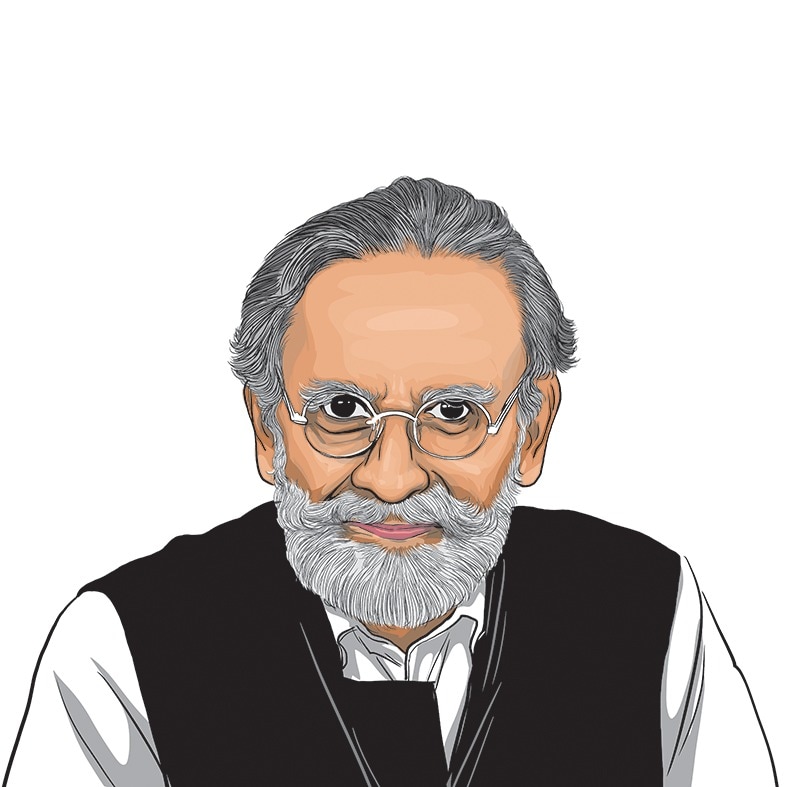Opinion Pope Francis did not preach inclusion. He lived it
In a world tempered by spectacle and cynicism, Pope Francis offered another way — the way of tenderness. He reached out to atheists, embraced the disabled, and championed interfaith dialogue
 Pope Francis’s vision of inclusive spirituality has reshaped how the world understands faith. (Reuters/File)
Pope Francis’s vision of inclusive spirituality has reshaped how the world understands faith. (Reuters/File) What is spirituality? Not the recitals of creeds or clanging of cymbals, but the quiet, daily effort to honour something larger than oneself. True spirituality is expansive, not exclusive — a tender attentiveness to the needs of others, rooted in humility and service. Pope Francis has redefined spiritual leadership in a fractured world, where faith is often wielded as a weapon. He led a gentle revolution, not by tearing down institutions, but by widening the embrace of grace.
Pope Francis’s vision of inclusive spirituality has reshaped how the world understands faith. Early in his papacy, when asked about gay Catholics, he replied, “Who am I to judge?” That single phrase disarmed centuries of doctrinal rigidity and pointed towards a Church that welcomes rather than excludes. His decision to wash the feet of Muslim women in a Roman prison, to bless migrant families, to dine with the homeless in the shadow of St Peter’s — all speak of a revolution enacted not in thunder but in whispers.
This inclusive spirit has guided his global outreach. In 2017, after meeting Rohingya refugees in Bangladesh, he held their hands and gently said, “The presence of God today is also called Rohingya.” It was not merely diplomatic empathy; it was theological affirmation. For Pope Francis, God resides not in marble palaces, but in wounded humanity — in those too often forgotten.
Born Jorge Mario Bergoglio in Buenos Aires in 1936 to Italian immigrant parents, Francis grew up among the working poor. He swept floors in a chemistry lab, taught literature to high school students, and once served as a nightclub bouncer. A near-fatal illness in his early 20s left him without half a lung and with a heightened sense of life’s fragility.
His Jesuit formation deepened his focus on justice, education, and humility. As the archbishop of Buenos Aires, he travelled in buses, lived in a modest flat, and visited the city’s slums regularly, earning the affectionate name Papa Villero, the Slum Pope. His decision, after his election in 2013, to take the name Francis, after the saint of poverty, peace and ecology — that was his first quiet revolution. He chose not the papal apartments, but a modest guesthouse. The message was clear: St Peter’s throne could be a chair of simplicity.
Meeting him
In January 2024, I was fortunate to be granted an audience with Pope Francis. I recall the moment with enduring clarity, not for its grandeur, but for its profound humanity. The room I was in was shared with others: Some dignitaries, some pilgrims, others, seekers like me, and I was a man in need of some hope. And somehow in my brief encounter, I achieved it. I am not a Catholic, and I hadn’t come with a petition or agenda, but with something far simpler, a yearning for reassurance — and in his presence in those fleeting moments, I received it.
It is hard to articulate what happens in the company of someone deeply and relentlessly good. There was stillness in him, a listening presence that made the noise of the world fall away. He asked about my work, my family, not out of politeness, but with genuine curiosity. Something in me shifted. I felt lighter, more courageous. I left that encounter feeling that our bruised and beautiful world was still worth fighting for. That was his gift to me. On my return home a week later, I received a personally signed letter of blessings.
The lasting impact of a radical mercy
Pope Francis’s philosophy is not captured in catechisms, but in gestures. He did not preach inclusion. He lived it. He reached out to atheists, embraced the disabled, and championed interfaith dialogue. His encyclicals speak urgently of climate justice, economic equity, and the dignity of labour. In Fratelli Tutti, he wrote not as a Pope, but as a fellow human pleading for fraternity in a world sliding into division.
Francis’s theology was less about orthodoxy than orthopraxy. Right action, not merely right belief. He ruffled the feathers of traditionalists, but touched the hearts of millions. Critics accused him of being too political; in truth, he was deeply personal. What is faith, if not the courage to enter another’s pain?
Pope Francis has not redefined Christianity. He reminded the world about its core values of mercy, humility, justice and love. He showed that spiritual authority need not be thunderous to be transformative. The power of his papacy lay not solely in the strength of its institutions, but mainly in the strength of its compassion.
In a world tempered by spectacle and cynicism, Pope Francis offered another way: The way of tenderness, of steadfast inclusion.
In a time of fracture and fury in the world, Pope Francis stood as a quiet insurgent – a shepherd of souls, who healed not by decrees but with dignity, not with dogma but with presence. He wore no armour, raised no flags, and yet he disarmed despair wherever he went. By daring to love beyond boundaries, by upholding mercy above judgement, he reminded us that faith at its finest is about being human with frailties first so that one may flourish.
In a world increasingly getting exhausted by division, the gentlest revolution of all may be the one that begins with kindness.
The writer is a retired British consultant psychiatrist, formerly in private practice in London and the southeast of England. He now lives in Kochi.






